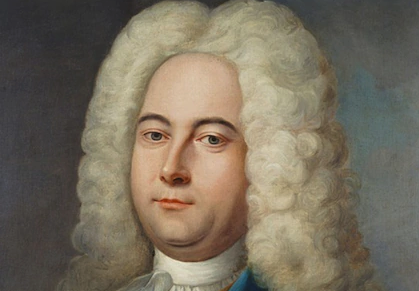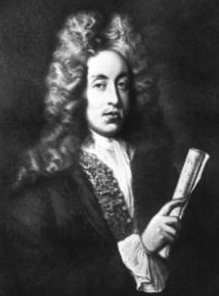A Musical Interlude
If you asked me to list my Top 10 “go to” classical music pieces, I’d start by opening up iTunes and taking a gander at what I’ve listened to the most. High up the list you’ll see Bach (Chaconne), Tallis (anything), Pärt (Magnificat), the incredibly romantic middle movement from Chopin’s piano concerto #1, and Beethoven’s violin concerto –in short, a real mix from across the centuries and all stuff that I go back to time and time again.

One genre that’s under-represented is Baroque, a style probably most closely associated with German (Bach) and Italian (Vivaldi) composers. Bach’s the best known and the most accomplished composer of the Baroque era, rightfully revered as an astonishing musical innovator. Whilst I love much of his music, particularly the solo violin and cello works, I couldn’t listen to the entirety of the Goldberg piano variations in one sitting; there’s a bit too much mathematical twiddling around for me to maintain focus for more than 20 or so minutes.
NWOBB
There was a strong English school of Baroque music, but it arrived quite late to Albion’s green fields, popping its head around the door in the late 1600s after “breaking” in Germany in first half of the century. The New Wave of British Baroque (NWOBB) was spearheaded by Henry Purcell who died in 1695 at the untimely age of 36.

The English composers never quite achieved the level of recognition that the continental German school did, although they were hugely influential on generations of English composers that followed –think Gilbert and Sullivan, for example, or the now-largely-forgotten Charles Dibdin (Dibdin’s piece The Ephesian Matron is a lovely English baroque confection and worth tracking down, IF you’re a fan of the genre.)
The most prolific “English” exponent of Baroque music, who composed one of the fixtures in my Top 10 of classical pieces, was actually a naturalised German, George Frideric Handel. Only 10 years old when Henry Purcell passed away, he lived in England during the most prolific phase of his career, earning lasting fame for his great choral work, The Messiah with its iconic Hallelujah Chorus sung here by the Mormon Tabernacle Choir.
The Coronation Anthems
But of all of Handel’s works, my personal favourite is his collection known as the Coronation Anthems, which I sang as a boy soprano (awww…shucks) with the choir of Chatham House Grammar School. Composed for the coronation of George II in 1685, it’s a group of four anthems that have been performed at the coronation of many subsequent British monarchs: Zadok The Priest, Let Thy Hand Be Strengthened, The King Shall Rejoice, My Heart is Inditing
(I’ve always wondered who Zadok was. As kids we just sang and never asked. The all-knowing wikipedia tells me he: was a Kohen, biblically recorded to be a descendant from Eleazar the son of Aaron. He was the high priest during the reigns of David and Solomon. He aided King David during the revolt of his son Absalom, was subsequently instrumental in bringing Solomon to the throne and officiated at Solomon’s coronation.)

It’s Under The Front Seat
I finally threw out my CD of the Anthems a couple of years ago. It’d been in the car for years, often never leaving the player for months at a time. Eventually it migrated -accidentally- to the floor under the driver’s seat, where it got scratched to fuck and would never play again.
The opening anthem, Zadok the Priest, is perhaps the most famous of the four. Handel uses a typically baroque theme of repeated arpeggios to carefully ratchet up the musical tension. It’s the perfect accompaniment for a sovereign walking regally down the aisle of Westminster Cathedral. The tension is broken when the whole choir bursts into an impressive opening chorus, singing “Zadok the Priest and Nathan the Prophet anointed Solomon King.” It challenges the top range of many boy sopranos, opening up on a high-ish F/G theme. Take a listen.
Wonderful stuff, and rightly revered, but the countless hours of practice we put in as a choir brought the fourth Anthem, “My Heart Is Inditing” into sharp focus for me, and I’ve loved it ever since. I can still remember most of the soprano score some 40 years later.
My Heart Is Inditing
Anthem is a slight misnomer. It’s actually four short-but-perfect pieces, opening with the eponymous “My Heart Is Inditing of A Good Matter” (The verb “indite” is used here in its arcane meaning “to write or compose”) and finishing up with “Kings Shall Be Thy Nursing Fathers”, a suitably grand-stand finish into which Handel poured all of his creativity. Again, in typical baroque style the four songs are very florid with twiddly violins, pounding timpanis and lots of martial-sounding trumpets making it tremendous fun to sing.
I’d always hoped to sing the piece accompanied by an orchestra. Alas, our school budget only covered a rather elderly and tatty tweed-clad church organist so we never really captured the full grandeur of Handel’s work. But we gave it a bloody good go.

